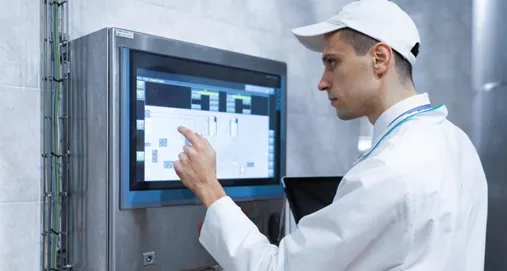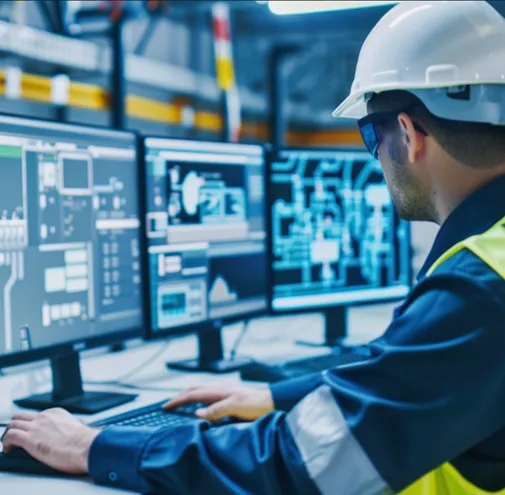Industrial control systems are systems designed to automatically monitor and control devices and equipment involved in industrial processes. The purpose of these systems is to optimize processes, enhance safety, and improve efficiency.
Industrial control systems are generally divided into three categories: supervisory control and data acquisition systems, distributed control systems, and programmable logic controller systems. These systems ensure the safe and flawless operation of industrial processes.
What Are Industrial Control Systems?
The question “What are industrial control systems?” can be defined simply as systems that ensure industrial systems operate correctly, flawlessly, and efficiently. These systems are predominantly used during the operation of industrial processes and are generally classified into three categories:
Supervisory Control and Data Acquisition Systems (SCADA)
Distributed Control Systems (DCS)
Programmable Logic Controller Systems (PLC)
The main purpose of industrial systems is to optimize various industrial processes, ensure safety, and increase efficiency. These systems are widely used in factories, power plants, and water treatment facilities, among other sectors.
Industrial control systems (ICS) consist of various technologies aimed at optimizing production and automation processes. These systems minimize potential errors in production facilities, contributing to reduced production costs.

ICS offer the following general features:
The advantages offered include:
ICS and Operational Technologies
Operational technologies (OT) are hardware and software systems used to monitor, control, and manage devices and processes. These systems play a vital role, especially in industrial environments such as production, energy, transportation, and public services.
The main objective of OT is to ensure that industrial processes are conducted in a safe, efficient, and sustainable manner. Some of the core components of OT include sensors, actuators, PLC, DCS, SCADA, and industrial networks.
The advantages of operational technologies are as follows:
- Provide real-time control and monitoring. This technology allows industrial processes to be monitored and controlled in real-time.
- Minimizes human error, thereby increasing efficiency and reducing production costs.
- Automates processes that are critical to safety. Systems like sensors and SCADA detect hazardous situations and enable intervention.
- OT offers flexibility in expanding production lines or integrating with new processes.
- Optimizes energy usage and contributes to energy savings.
OT systems optimize industrial processes while enhancing safety and ensuring efficiency. These systems play a critical role, particularly in the automation of production lines.

What Do Industrial Automation Systems Do?
The question “What do industrial automation systems do?” is often asked. In the simplest terms, automation systems are technological systems that enable the automatic control, management, and monitoring of production processes.
One of the key features of these systems is minimizing human error, leading to more efficient production lines that are safer and capable of continuous operation. Automation systems are effective at every stage of production, increasing efficiency, and raising safety and quality standards.
For more detailed information about industrial control systems, automation systems, and operational technologies, you can contact Mega Industry.
